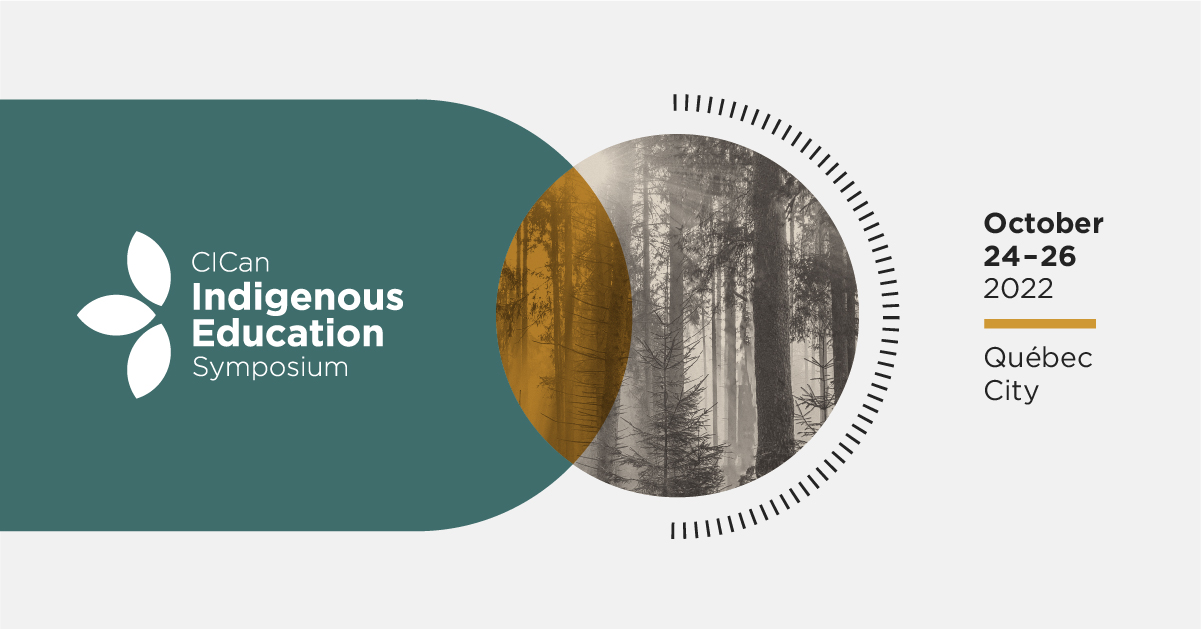Quebec City, October 27, 2022 – Earlier this week, nearly 150 educational leaders gathered during Colleges and Institutes Canada’s national Indigenous Education Symposium to discuss and reflect on shared visions and responsibilities when it comes to advancing truth and reconciliation.
This was CICan’s 12th national Indigenous Education Symposium, the first in three years due to the pandemic, taking place in Québec City on the unceded territory of the Huron-Wendat Nation. The event engaged participants in a dialogue around the importance of education and collective action in creating lasting reconciliation with Indigenous communities. Leaders touched on developing programs that meet the learning needs of Indigenous students; supporting their well-being, participation, engagement, and achievements on campus; and valuing Indigenous knowledge, culture and language in post-secondary education.
Knowledge was shared by guests from across the country, including Commissioner Marie Wilson, TRC Canada, 2009-2015; Grand Chief Vincent, Huron-Wendat Nation; Richard Kistabish, President, UNESCO Canadian Commission; Kelly Lendsay, president and founder of Indigenous Works and Luminary; Jean-François Rochon, UNESCO Chair in the Transmission of First Peoples’ Culture to Foster Well-Being and Empowerment; and Mike Metatawabin, former Deputy Grand Chief at Nishnabe Aski Nation, poet, and advocate for truth and reconciliation.
Colleges and institutes are the primary point of access to post-secondary education for First Nations, Inuit, and Métis learners. They offer over 300 credential programs tailored to the needs of Indigenous learners and communities. They also serve as hubs to support all learners, no matter the background or experience, to upgrade and advance their skills for labour market success.
The return to an in-person symposium also coincides with CICan’s 50th anniversary as an association, which was founded in 1972 and has long been active in Indigenous education.
In fact, CICan launched its Indigenous Education Protocol in 2014, which is both an aspirational document and a framework to improve educational outcomes for Indigenous learners and help institutions support Indigenous students. To date, 69 colleges and institutes have voluntarily signed the Protocol.
Quotes:
“This symposium is so important because it gives us the opportunity to learn from each other and to inspire each other to make more progress towards lasting reconciliation. Using the Sustainable Development Goals as a framework for collaboration, in particular SDG 4 Quality education and SDG 10 Reduced inequalities, we can contribute to positive change. Indigenous education is essential to making Canada future-proof.”
Denise Amyot, President and CEO, Colleges and Institutes Canada
“Our government recognizes the diversity and unique richness of Indigenous languages, and the urgent need for action to support their revitalization. While there’s still a lot of work to do, the recent Indigenous Languages Act is an important tool in the efforts of Indigenous peoples to reclaim, revitalize, maintain and strengthen their languages. I’m happy to see Canadian colleges and institutes’ work to play a positive and significant role in supporting Indigenous peoples and advancing reconciliation.”
The Honourable Pablo Rodriguez, Minister of Canadian Heritage and Quebec Lieutenant
About Colleges and Institutes Canada:
CICan is the national and international voice of Canada’s largest post-secondary education network. It advocates, builds capacity, and drives knowledge to strengthen Canada’s publicly supported colleges, institutes, CEGEPs, and polytechnics. With more than 95% of Canadians living within 50 km of a member institution, and thanks to its extensive reach around the globe, CICan works to future-proof communities in Canada and abroad.
We respectfully acknowledge that CICan’s offices in Ottawa are located on the traditional and unceded territory of the Algonquin Anishinaabe Nation.
-30-
For more information:
Leah Jurkovic
Director, Communications
Colleges and Institutes Canada
Email: ljurkovic@collegesinstitutes.ca
Twitter: @CollegeCan

